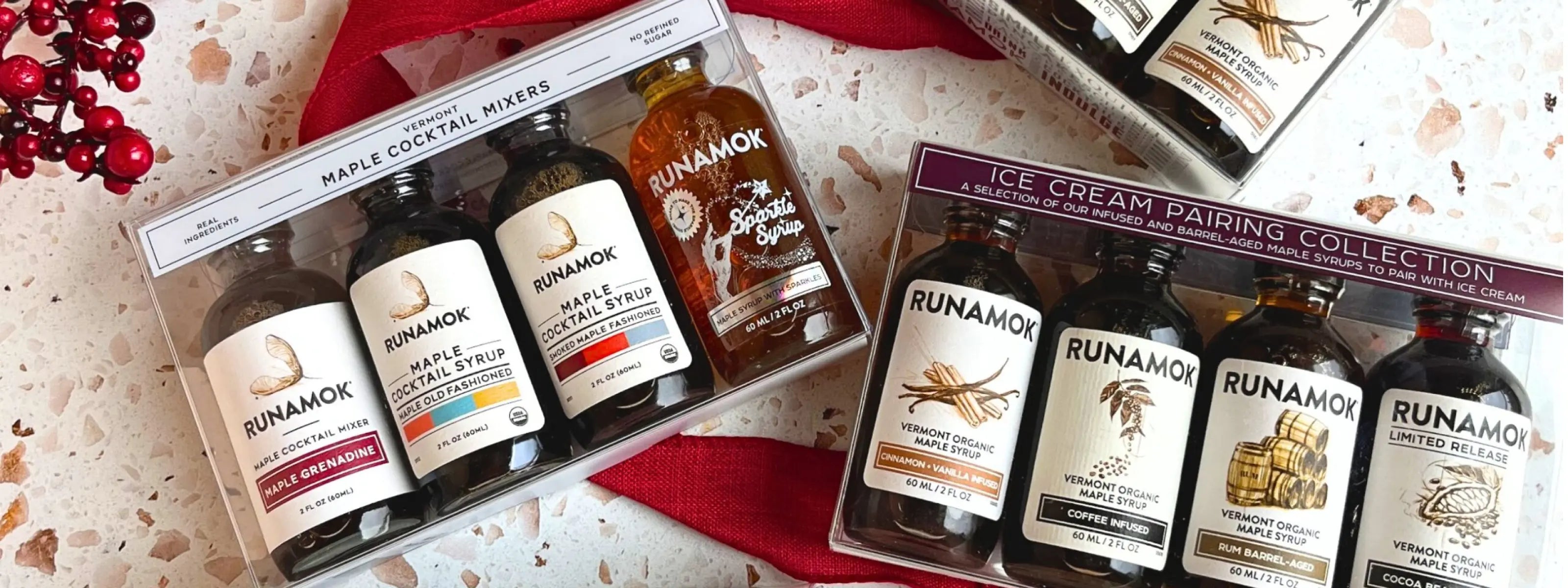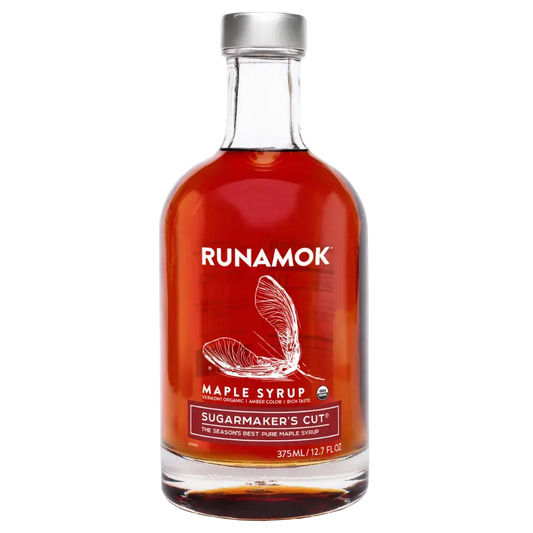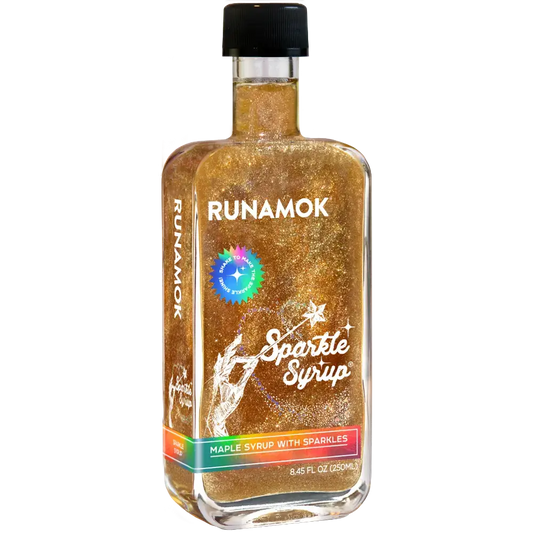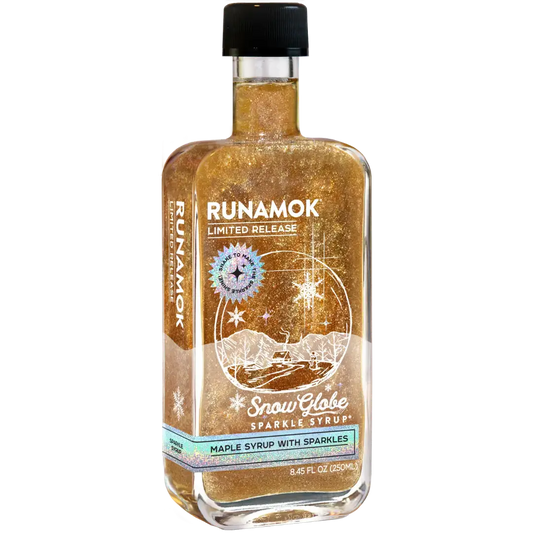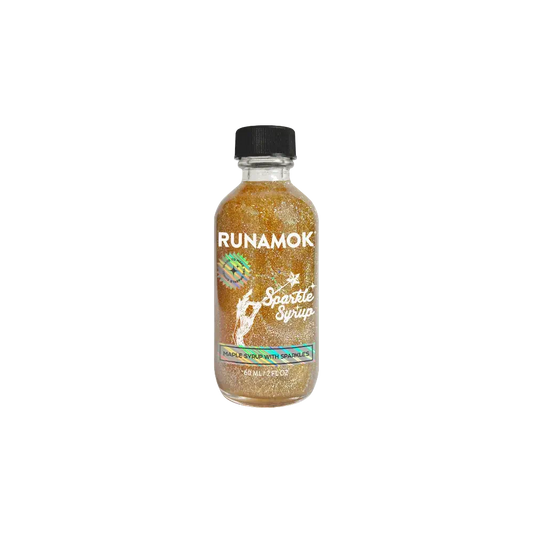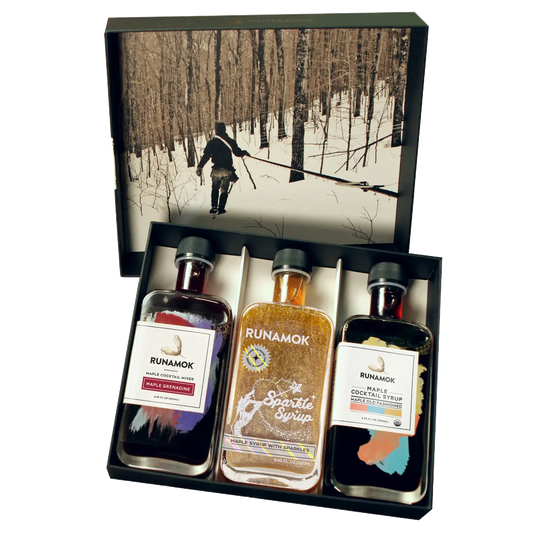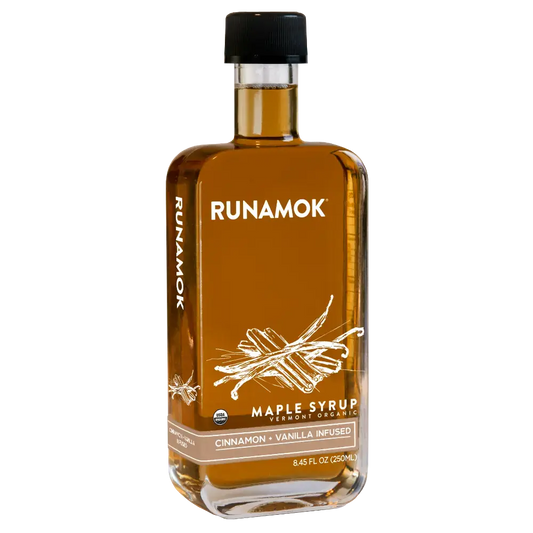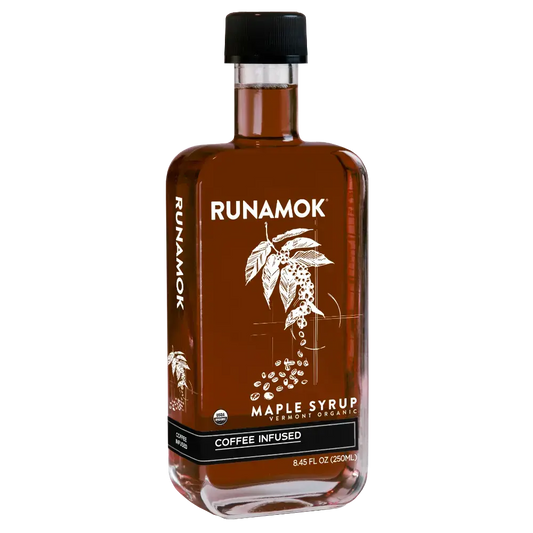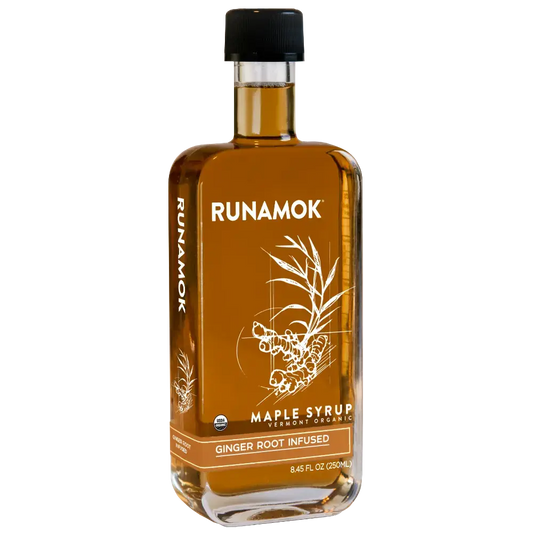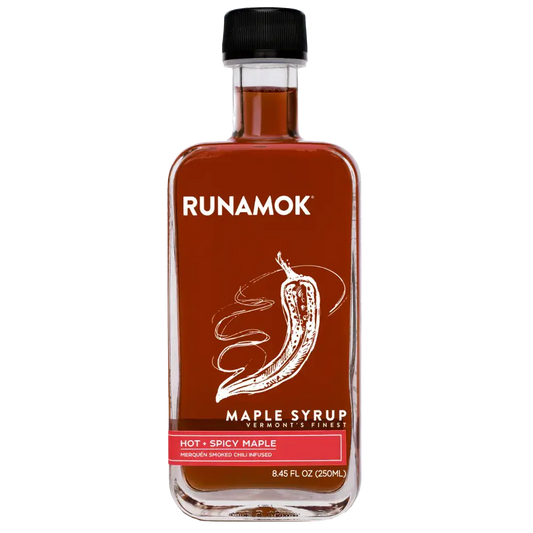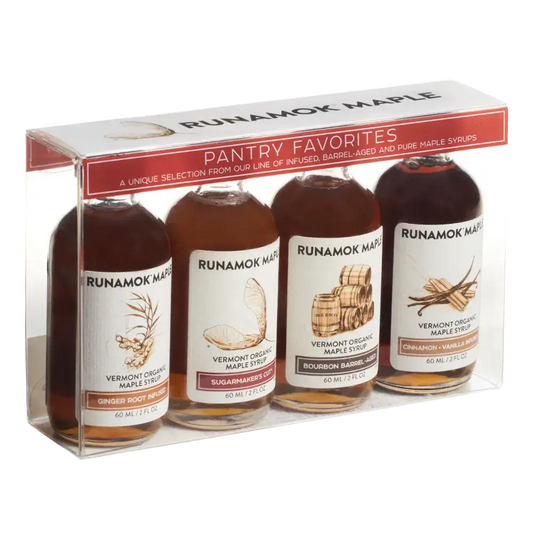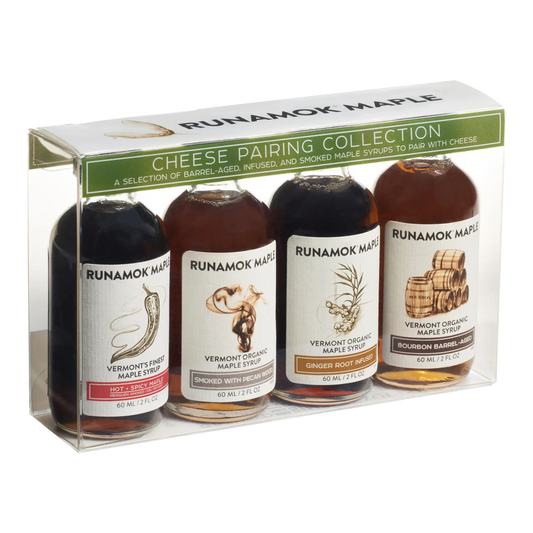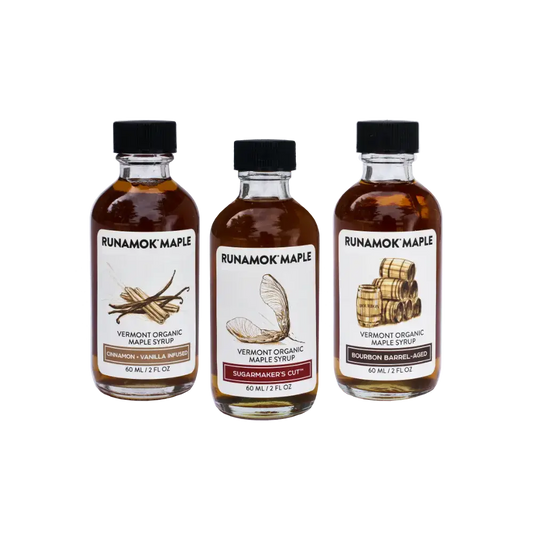Maple Syrup
All of our maple syrup is sourced and boiled from sap to syrup right here in Vermont. Try our Sugarmaker’s Cut — pure organic Vermont maple syrup harvested at the peak flavor of the season — or check out our best selling infused and barrel-aged maple syrups. Qualifying orders ship free!

Traditional Maple Syrup
-
Sugarmaker's Cut: Organic Vermont Maple Syrup - 750ml
Regular price $29.95Regular priceUnit price / per$29.95Sale price $29.95 -
Sugarmaker's Cut: Organic Vermont Maple Syrup - 375ml
Regular price $19.95Regular priceUnit price / per$19.95Sale price $19.95 -
Sugarmaker's Dark: Wood-Fired Vermont Maple Syrup
Regular price $19.95Regular priceUnit price / per$19.95Sale price $19.95 -
The Sugarmaker's Bundle
Regular price $39.90Regular priceUnit price / per
Sparkle Syrup
-
Sparkle Syrup®
Regular price $19.95Regular priceUnit price / per$19.95Sale price $19.95 -
Snow Globe Sparkle Syrup®
Regular price $19.95Regular priceUnit price / per$19.95Sale price $19.95 -
Mini Sparkle Syrup® 24 Pack
Regular price $142.80Regular priceUnit price / per -
Cocktail Mixers Collection
Regular price $22.95Regular priceUnit price / per$22.95Sale price $22.95 -
Bar Essentials Gift Box
Regular price $69.95Regular priceUnit price / per$69.95Sale price $69.95 -
Custom Gift Box
Starting at $58 -
Holiday Gift Box
Regular price $69.95Regular priceUnit price / per$69.95Sale price $69.95
Barrel-Aged Maple Syrup
-
Apple Brandy Barrel-Aged Maple Syrup
Regular price $19.95Regular priceUnit price / per$19.95Sale price $19.95 -
Bourbon Barrel-Aged Maple Syrup
Regular price $19.95Regular priceUnit price / per$19.95Sale price $19.95 -
WhistlePig® Rye Whiskey Barrel-Aged Maple Syrup
Regular price $25.95Regular priceUnit price / per$25.95Sale price $25.95 -
Rum Barrel-Aged Maple Syrup
Regular price $19.95Regular priceUnit price / per$19.95Sale price $19.95 -
Banana Rum Infused Maple Syrup
Regular price $19.95Regular priceUnit price / per$19.95Sale price $19.95 -
Smoke + Barrels Pairing Collection
Regular price $22.95Regular priceUnit price / per$22.95Sale price $22.95 -
Barrel-Aged Maple Syrup Gift Box
Regular price $69.95Regular priceUnit price / per$69.95Sale price $69.95 -
Best Sellers Maple Syrup Gift Box
Regular price $69.95Regular priceUnit price / per$69.95Sale price $69.95 -
Best Sellers Collection: Small Maple Syrup Gift Box
Regular price $31.95Regular priceUnit price / per$31.95Sale price $31.95 -
Good Food Award Bundle
Regular price $68.95Regular priceUnit price / per$78.80Sale price $68.95Sale
Gifts + Sets
-
Holiday Gift Box
Regular price $69.95Regular priceUnit price / per$69.95Sale price $69.95 -
Best Sellers Maple Syrup Gift Box
Regular price $69.95Regular priceUnit price / per$69.95Sale price $69.95 -
Barrel-Aged Maple Syrup Gift Box
Regular price $69.95Regular priceUnit price / per$69.95Sale price $69.95 -
Custom Gift Box
Starting at $58 -
Coffee Lover's Maple Syrup Gift Box
Regular price $69.95Regular priceUnit price / per$69.95Sale price $69.95 -
Cocktail Gift Box
Regular price $65.95Regular priceUnit price / per$0.00Sale price $65.95 -
Best Sellers Collection: Small Maple Syrup Gift Box
Regular price $31.95Regular priceUnit price / per$31.95Sale price $31.95 -
Vermonter's Collection: Small Maple Syrup Gift Box
Regular price $31.95Regular priceUnit price / per$31.95Sale price $31.95 -
Cocktail Mixers Small Gift Box
Regular price $30.95Regular priceUnit price / per$30.95Sale price $30.95
Infused Maple Syrup
-
Banana Rum Infused Maple Syrup
Regular price $19.95Regular priceUnit price / per$19.95Sale price $19.95 -
Blueberry + Lemon Infused Maple Syrup
Regular price $19.95Regular priceUnit price / per$19.95Sale price $19.95 -
Cinnamon + Vanilla Infused Maple Syrup
Regular price $19.95Regular priceUnit price / per$19.95Sale price $19.95 -
Cocoa Bean Infused Maple Syrup
Regular price $19.95Regular priceUnit price / per$19.95Sale price $19.95 -
Coffee Infused Maple Syrup
Regular price $19.95Regular priceUnit price / per$19.95Sale price $19.95 -
Festivus Infused Maple Syrup
Regular price $19.95Regular priceUnit price / per$19.95Sale price $19.95 -
Ginger Root Infused Maple Syrup
Regular price $19.95Regular priceUnit price / per$19.95Sale price $19.95 -
Holiday Spice Infused Maple Syrup
Regular price $19.95Regular priceUnit price / per$19.95Sale price $19.95 -
Hot + Spicy Maple Syrup (Smoked Chili Pepper Infused)
Regular price $19.95Regular priceUnit price / per$19.95Sale price $19.95 -
Peppermint Bark Maple Syrup
Regular price $19.95Regular priceUnit price / per$19.95Sale price $19.95 -
Pineapple Upside Down Infused Maple Syrup
Regular price $19.95Regular priceUnit price / per$19.95Sale price $19.95 -
Pumpkin Spice Infused Maple Syrup
Regular price $19.95Regular priceUnit price / per$19.95Sale price $19.95 -
Salted Caramel Infused Maple Syrup
Regular price $19.95Regular priceUnit price / per$19.95Sale price $19.95 -
Smoked Maple Syrup
Regular price $19.95Regular priceUnit price / per$19.95Sale price $19.95 -
Snow Globe Sparkle Syrup®
Regular price $19.95Regular priceUnit price / per$19.95Sale price $19.95 -
Sparkle Syrup®
Regular price $19.95Regular priceUnit price / per$19.95Sale price $19.95 -
Vanilla Bean Infused Maple Syrup
Regular price $19.95Regular priceUnit price / per$19.95Sale price $19.95 -
Pantry Favorites Pairing Collection
Regular price $22.95Regular priceUnit price / per$22.95Sale price $22.95 -
Cheese Pairing Collection
Regular price $22.95Regular priceUnit price / per$22.95Sale price $22.95 -
Ice Cream Pairing Collection
Regular price $22.95Regular priceUnit price / per$22.95Sale price $22.95 -
Runamok Maple Essentials - 24 Pack
Regular price $142.80Regular priceUnit price / per -
Mini Sparkle Syrup® 24 Pack
Regular price $142.80Regular priceUnit price / per -
 Sale
SaleClassics Bundle
Regular price $53.85Regular priceUnit price / per$59.85Sale price $53.85Sale -
New Flavor Contest Bundle
Regular price $84.75Regular priceUnit price / per$99.75Sale price $84.75Sale -
Custom Gift Box
Starting at $58
Pure Vermont Maple Syrup
We’re proud to offer two varieties of pure Vermont maple syrup. Sugarmaker’s Cut: the best Organic Vermont Maple Syrup of the season, and Sugarmaker’s Dark: the best wood-fired Vermont Maple Syrup of the season.

Infused Maple Syrups
All of our infused maple syrups are infused with high-quality, premium ingredients and are made right here in Vermont. Try our best-selling classics like our Cinnamon + Vanilla Infused Maple Syrup or some of our unique flavors like Ginger Infused Maple Syrup or Cocoa Bean Infused Maple Syrup.
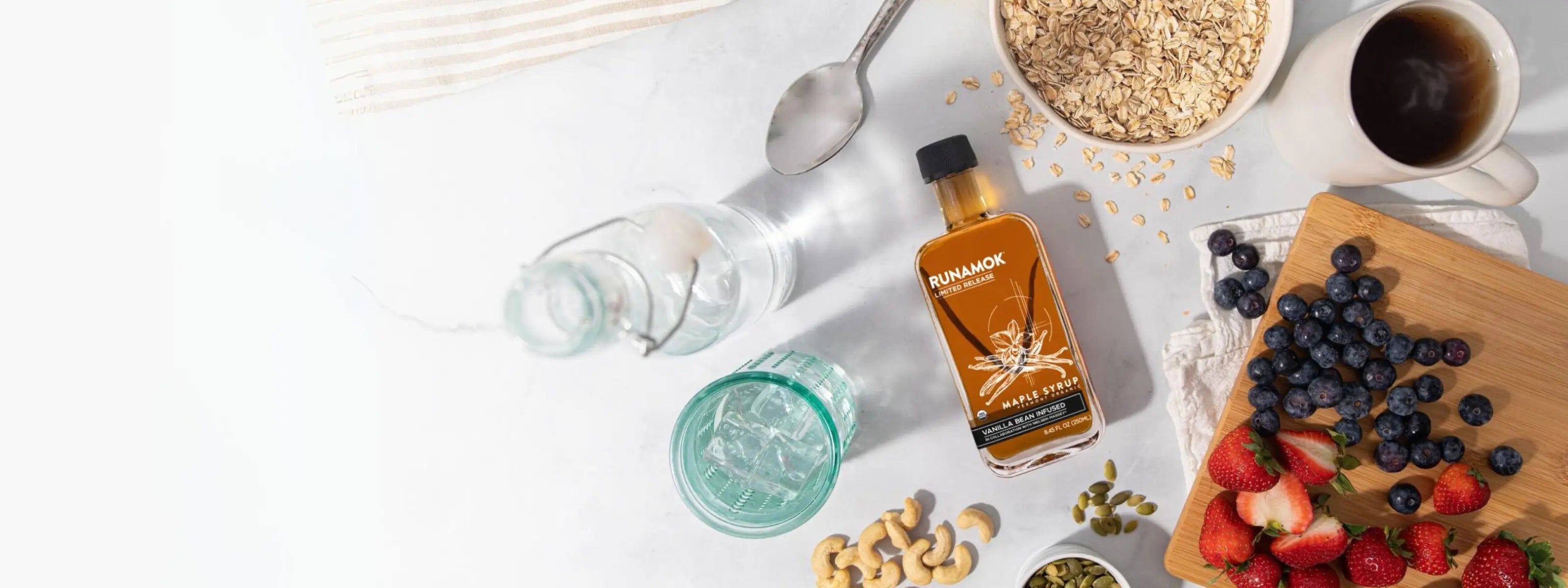
Barrel-Aged Maple Syrups
Our barrel-aged maple syrups are 100% pure Vermont maple aged in Bourbon, Rum, and WhistlePig Rye Whiskey barrels. Delicious on pancakes, ice cream, and pretty much anything else you can think of.
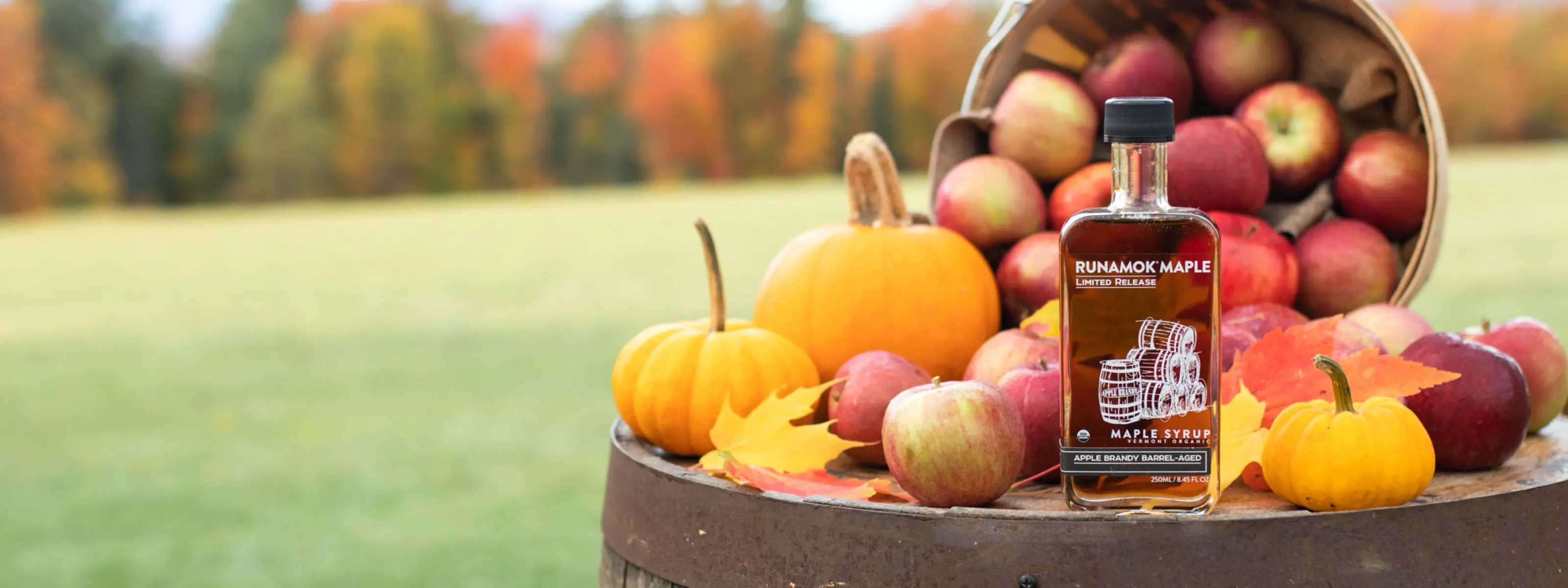
Spicy & Smoked Maple Syrups
Add a dash of smoky + sweet to cocktails, veggies, fish and meat or drizzle that perfect blend of sweet and heat over your favorite dishes.
Truly capturing the versatile nature of maple, these products are anything but your standard maple syrup.

Pairing Collections & Sampler Packs
These maple syrup sampler packs are the perfect introduction to our line of barrel-aged, infused, smoked and traditional maple syrup. Discover just how well maple pairs with cheese, ice cream, coffee/tea and cocktails with these carefully curated collections. Did we mention they make amazing gifts?
